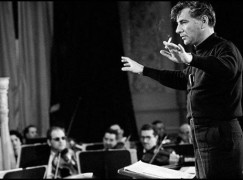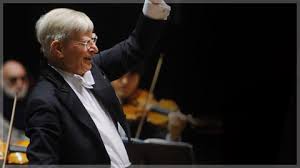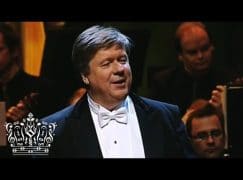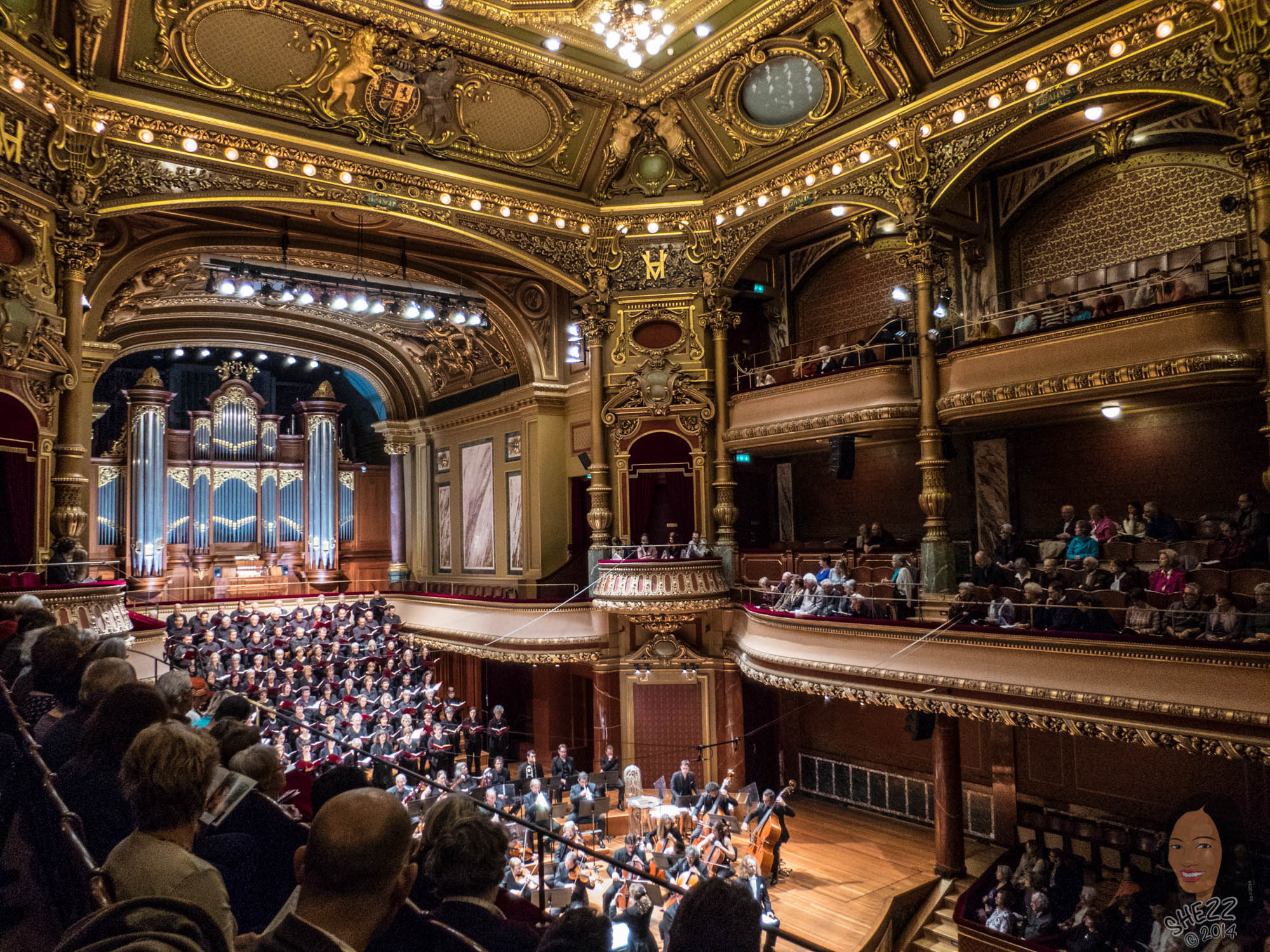The Teatro Regio audience is unhappy with the political dismantling of a decade’s success.
More here.

The Teatro Regio audience is unhappy with the political dismantling of a decade’s success.
More here.

Sir Simon Rattle has been an advocate of the Deryck Cooke performing version of Mahler’s Tenth since he was in his 20s and has probably conducted it more than any other maestro.
In his most recent performance with the London Symphony Orchestra – a stunner – he conducted the huge symphony from memory.
Watch here:
The symphony begins at 1:37:05.
Earlier, at 1:11:00, Rattle argues authoritatively that Mahler’s 10th ‘was written from beginning to end by Mahler: we have every single bar.’ It contains, says Rattle, ‘his profoundest and most moving finale.’
He ads: ‘I get angry when people say he didn’t complete it.’
Essential viewing.
The slightly irritating backstage presenter keeps using the word ‘controversial’ for anything she cannot understand.
Read Fiona Maddocks’ review here.
See more comment here.

From Joseph Horowitz’s centennial essay on a failed messiah:
Bernstein’s disappointment upon leaving the Philharmonic was undisguised. He knew that he had failed to transform the orchestra into something dynamically American. He had endured steady complaints—basically valid—that it lacked the gold-standard polish of the orchestras in Boston, Philadelphia, Chicago, and Cleveland. But if his were not the accomplishments he had once envisioned, they were formidable and distinctive. He had not remotely succeeded in canonizing an American repertoire. But, starting from scratch, he had established the iconic importance of Charles Ives. He had singlehandedly canonized Nielsen and helped to restore Sibelius’s luster. And he had left a central legacy honoring a composer and Philharmonic music director far bigger than himself: Gustav Mahler….
Read on here.

From Joseph Horowitz’s centennial essay on a failed messiah:
Bernstein’s disappointment upon leaving the Philharmonic was undisguised. He knew that he had failed to transform the orchestra into something dynamically American. He had endured steady complaints—basically valid—that it lacked the gold-standard polish of the orchestras in Boston, Philadelphia, Chicago, and Cleveland. But if his were not the accomplishments he had once envisioned, they were formidable and distinctive. He had not remotely succeeded in canonizing an American repertoire. But, starting from scratch, he had established the iconic importance of Charles Ives. He had singlehandedly canonized Nielsen and helped to restore Sibelius’s luster. And he had left a central legacy honoring a composer and Philharmonic music director far bigger than himself: Gustav Mahler….
Read on here.

And more:
During the Dark Ages of the New York Philharmonic—the music directorship of Zubin Mehta (1978-91)—I would sometimes find myself in the orchestra’s offices. I dreaded seeing the photograph of Leonard Bernstein hanging over an elevator. It was an image whose ebullience provoked a piercing sadness and incredulity. Evidently, Bernstein no longer wanted to take charge of his leaderless orchestra. And the orchestra didn’t want him. In 1984, Bernstein materialized to conduct part of a program celebrating the 60th anniversary of the Young People’s Concerts. Though a film clip of his “Who Was Gustav Mahler?” was shown, Bernstein did not speak. A member of the Philharmonic staff confided to me the reason: Bernstein was “crazy.” He could not be “controlled.”…
by Joel Cohen of the Boston Camerata, special to Slipped Disc

The main thing to know about Jean-Claude Malgoire (who died this month) was that he was a vivacious, imaginative, and intensely musical human being. The rest, as the saying goes, is commentary.
I remember Jean-Claude, short, bearded, and stocky, a demonstrative Mediterranean born and bred, serving his own, homemade, bean-and- basil soupe au pistou to a small gathering of guests he had invited to his table in the little village house he had purchased a few kilometers north of Aix-en-Provence. “What’s the matter with all of you?” he chided us in his Provençal brogue, as he piled on second and third helpings of his thick, delicious concoction. “Vous n’êtes pas de vrais mangeurs!”
Jean-Claude invariably approached any of his activities – eating, directing an ensemble, riding his motorcycle, charming the ladies (he was good at this, despite his less-than- Grecian physique) with inimitable verve and imagination. He was not cautious and reserved; he was not buttoned-down. The energy and zest poured out of him.
There was nothing methodical or plodding about his approach to music. His manner was spontaneous, quasi-improvisational, and that in-the- moment approach, one of his most appealing traits, also got him into trouble at times. “I hate to rehearse,” he confided in me once. “What I enjoy is performing.” Sometimes the loose ends would show during concerts. But at its best, the Malgoire manner could produce thrilling moments, as when he decided, almost last-minute, to incorporate several wind machines during the mid-1970s commercial recording of a tempest scene in a Lully opera. I was told to leave off my continuo playing on the lute, and to stand at the back of the orchestra to manipulate one of these noisy gadgets. Whoosh! four of us operators went, making one hell of a racket as the pitched instruments played. It was goose-bumpy. And, as I recall, the recording came out very well.
Another recording, made well before his start as an ensemble leader and conductor, but in somewhat the same spirit, came out more than well – in fact, it is, in my opinion, one of the supreme glories in the history of recorded French repertoire. It’s the aria of Marguerite, “D’amour l’ardente flamme,” from Berlioz “Damnation de Faust,” as performed by Dame Janet Baker, circa 1965, with the Orchestre de Paris, and Jean-Claude as solo English horn. For the purposes of writing this paper, I just downloaded that performance from Amazon, and relistened, and it is every bit as hair-raisingly good as I remember it, when Magloire first played it for me on his scratchy turntable, at his village house in Saint-Martin-de-la Brasque. Do listen to this track if you have the time and inclination. Dame Janet is heart-rendingly magnificent, and Jean-Claude’s English horn, marvelously sensitive and empathetic, serves as Marguerite’s soul or second self, a doppelgänger of the vocal soloist. Incredibly, he even takes on at places Dame Janet’s characteristic vocal color, doing some kind of inexplicable magic with his instrument to create a musical and emotional unity with her. Only a musician of incredible skill, refinement, and control could have produced that result.
Jean-Claude was proud of that achievement. He told me that Dame Janet was a last-minute replacement for another, ailing mezzo, that she had flown in from London to the recording venue, and recorded the track, on the spot, with no rehearsal. That’s the kind of blessed moment Magloire strove for, and when everything worked and came together, life had joy, purpose, and meaning. He told me that it was the great Charles Munch, mentor to the young Orchestre de Paris, who recognized his talents, and who encouraged him to go beyond orchestral playing, and into musical direction. His workaround to the cumbersome French musical establishment, permitting him a faster track towards a new career, was the founding of two early music ensembles: Florilegium Musicum, for medieval and Renaissance repertoires, and La Grande Ecurie et la Chambre du Roi, for baroque music of the 17 th and 18 th centuries I performed with both groups, for a couple of seasons.
These were pioneering efforts; in France circa 1975 there was not a large pool of early-instrument specialists. Jean-Claude drew on his friendships within the Orchestre, and his ensembles of that epoch were composed largely of modern instruments, at 20th century orchestral pitch (A=440, or perhaps a cent or two higher). Inevitably, there had to be rehearsals, and Jean-Claude led them with sheer vital energy, relying on the very considerable métier of his first-desk orchestral players, and dwelling less than some other conductors on refinement of detail, or certain niceties of baroque style. He had the immense virtue of bringing important French music of earlier centuries back into the spotlight, and doing so with considerable élan vital.
And he did so at considerable risk to himself. As I recall from his narrative to me, when he led Rameau’s “Les Indes Galantes” at the Château of Versailles, the budget was short, and he took on substantial personal debt so that the show could go on, feathery costumes and all. He prepared his own editions of many works, directly transcribing Lully music from the Philidor manuscripts at the
Bibliothèque Nationale. He was forever imagining new projects, and exploring different repertoires. I am glad he was eventually entrusted with his own theater and company, as a richly deserved compensation for those pioneering years.
He liked to say, when criticized now and then for his full-steam- ahead approach to rehearsals and performance, “Well they say I am a brute. OK, I’m a brute! That’s just the way it is.” But in fact, Jean-Claude Magloire was a much more complex being than that. He indeed had vigor in him, and plenty of Southern French theatricality. He also had a capacity for enormous delicacy and sensitivity. I see via the internet that he has received many tributes since his recent death; such attention is richly deserved.
His work done, may he rest in peace.
(c) Joel Cohen/slippedisc.com

Herbert Blomstedt, former conductor of the NHK Symphony Orchestra, has been decorated with Japan’s Order of the Rising Sun, Gold Rays with Neck Ribbon.
(That’s what it says.)

The New York countertenor Aryeh Nussbaum Cohen has won the $10,000 first prize at the 30th Dallas Opera Guild Vocal Competition. He also took the audience prize.
Second was Canadian Tenor Josh Lovell. Third came Mexican Tenor Mario Rojas.
Cohen, 23, was one of the winners of last year’s Met auditions. He’s going places.

The international baritone Håkan Hagegård has resigned from the Royal Music Academy in Stockholm following allegations of sexual harassment.
Hagegård, 72, strongly denies the claims.
A radio documentary on Swedish classical music channel P2 last November titled ‘Don Juan at the music conservatory’ alleged widespread misconduct at Stockholm institutions without naming alleged perpetrators. No charges have been brought.
Unfounded allegations in Swedish media of bullying and discrimination led to the tragic death last month of Anne Sofie Von Otter’s husband, Benny Fredriksson.
Hagegård has made no comment. The Royal Music Academy issued a statement: ‘The Board of the Musical Academy welcomes Hagegård’s decision.’

The best-selling novelist Douglas Kennedy is an orchestra nut. He goes to concerts always and everywhere, even in Geneva where the audience is notorious for bad behaviour. Here’s how Douglas coped with ladies who can’t keep their fingers off their phones.
The concert hall for me is my church. I must hear over 125 live concerts a year. In this secular sacred place – you don’t talk to others. You don’t use mobile phones. You respect the communal nature of the event, the high seriousness of the musical endeavour onstage, and the fact that, for a few hours, we all come together to shut off the world outside and concentrate on the abstract wonder that is music’s universal language.

Last night in Geneva I spent two hours at the Victoria Hall – a true wonder of Beaux-Arts sryle, redolent of 19th century subdued opulence (as befits Genève, city of John Calvin), with a rather excellent acoustic. The hall was packed, the tickets feriously expensive (I got one of the few remaining seats a fortnight ago – it was a side view up in the Premeiere Galerie – or First Circle – and cost a whopping 130 Swiss Francs… around $135 or £95). But then again the Vienna Philharmonic were in town and this great orchestra can command such prices – especially in the ‘grand bourgeois’ city that is Genève. And Zubin Mehta was supposed to be leading the orchestra – only to fall ill and be replaced by Daniel Harding.
Now truth be told my jury is out on Mr Harding. I often find his performances to veer towards the technically immaculate and emotionally distant, lacking in the great metaphysic that a major conductor brings to the podium. But last night Harding was in febrile form, conducting a dynamic interpretation of Bernstein Symphony No 1 and a highly charged, deeply felt reading of Mahler 5. It was wonderful to see a clearly talented conductor lift his game and turn galvanic and profound.
But during the Bernstein there was a woman in the third row of the stalls filming the entire event. Five rows behind her a woman was texting. Another woman took several iPhone photos, the flash exploding across the semi-dark hall. And five seats down from me an overdressed woman in her fifties, very bling bling, with the sort of big black round spectacles that called to mind some sort of Fellini-esque ‘grande donna borghese’, spent the entire length of the Bernstein on her phone, not just missing the vivid immediacy of Harding and the Vienna Phil’s interepretation, but also causing a distraction for everyone around her.
As the Bernstein was played without pause between movements it was impossible to say anything. But when the first half ended I stood up and said in French:
“Don’t you know that using your phone during a concert is not just against the rules, but the height of impoliteness?”
The woman looked shocked, then turned monied arrogant.
“No one else complained” she said….
What Douglas did next? Read on here...

Reprinted with permission
Edward Francis-Smith, a former member of the European Union Youth Orchestra, has won an audition for a double-bass position at the Metropolitan Opera.
He is a rare British graduate of the Curtis Institute.
